Delivering immersive online classes, from Panama to all of Latin America
(March 2023) When Johel Batista was first exposed to maths and sciences in school in Panama, he had trouble to wrap his head around why the subjects matter at all in daily life. His marks reflected his skepticism, they weren't that great. That's quite usual in youngsters. But what followed isn't.
Batista kept trying to master the STEM subjects. So much so that at the age of 14, he started producing free online courses on math and sciences that showed him with just a board, a marker, and a computer. Fast forward 13 years and today, Ayudinga Foundation is one of the largest NGO in Latin America providing free online classes.
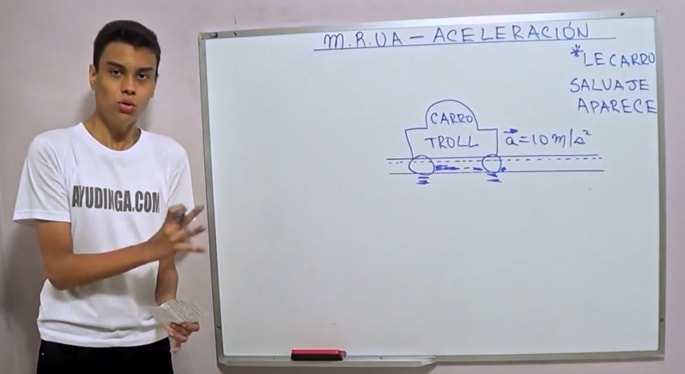
Batista in 2011
“I didn’t feel comfortable at school,” Batista recalls. “I felt like what we were learning at that time wasn’t going to be useful in life. Change the education model – that was my dream.”
His online platform, operated mostly by volunteers, has so far benefited over 16 million students throughout Latin America.
“It never crossed my mind that with just a board, a marker, a camera, and a computer for editing, I could give a second chance in life to millions of people in Latin America through education,” he says.
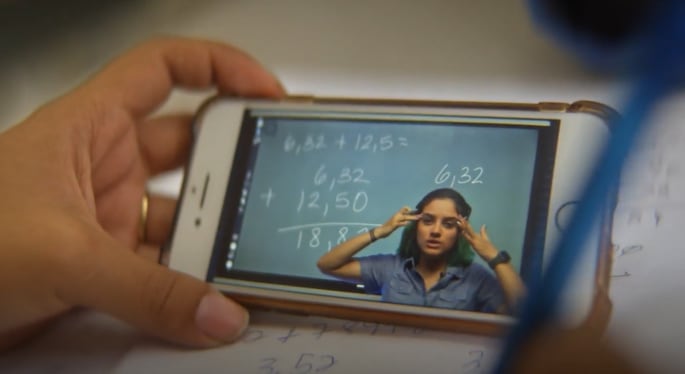
Learning math on a smartphone
Ayudinga trainers share some common traits. “We help other kids to grow, but we also grow ourselves,” says Kathy Davis, Director of Strategy, Ayudinga Foundation. “We all have gone through the same or similar situations with which we do not feel identified by the educational reality we are experiencing,” Batista adds.
Enabling Ayudinga to reach its goals requires more than just motivated trainers. Huawei is one of the partners that has supported the NGO, by providing its Cloud service free for three years. This helped accelerate the expansion of the Ayudinga Foundation during Covid and equipped the NGO with sophisticated tools to analyze the macrotrends in audiovisual content. The platform can also gauge student interest in various components, which helps to optimize content and improve delivery.
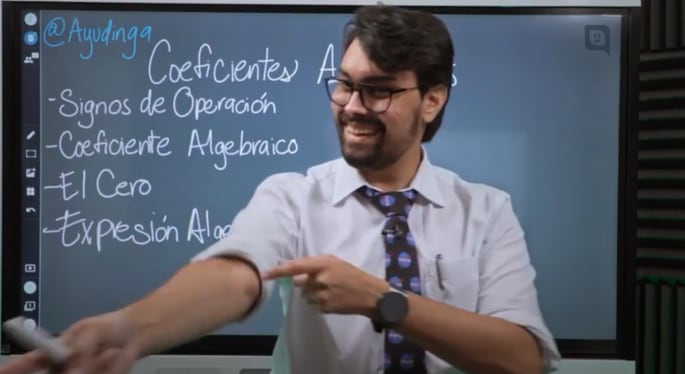
Batista teaching in 2022
“We started working to unify all the data into a single repository where we use Huawei Cloud to store it,” says Kevin Gonzalez, Ayudinga’s Director of Technology. “You know we have a lot of data.” Using Huawei Cloud has helped Ayudinga to automate its operations.
“When a class is virtual, you can use real-time video analysis algorithms to identify the deficiencies or strengths of the students, and how Ayudinga can continue delivering high-quality courses,” observes Jose Alejandro Vera, Manager, Huawei Cloud.
The Panama government has also supported Ayudinga. Dr. Maruja Gorday de Villalobos, Minister of Education, says that education needs to change in order to connect with younger generations. She arrived at her position after a full 30-year career as a teacher.
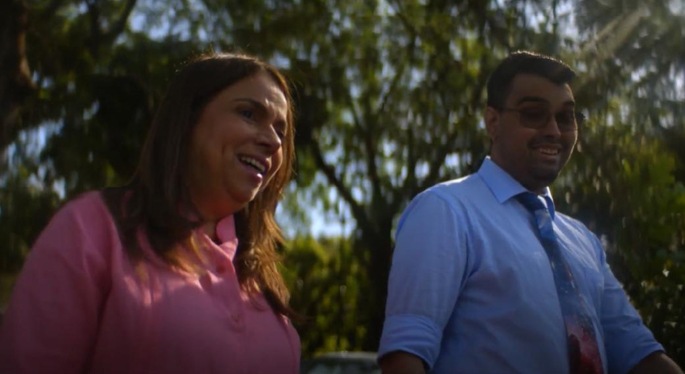
Batista (right) with Panama Education Minister Maruja Gorday
“We talk about artificial intelligence, technology, communications. All of that is important,” the minister says. “However, taking each student to that critical and analytical capacity to understand their context, to be able to contribute, that is different,” Gorday adds. Technology can help students better learn, she believes.
“In the end, education is about preparing for life,” she adds.
Moreno de Villalobos believes digital technologies and data science can help track students’ educational progress. Many complete their education in several stages, with gaps between high school, college, and adult education. Digital technological could help improve retention and create reinsertion systems for those who drop out.
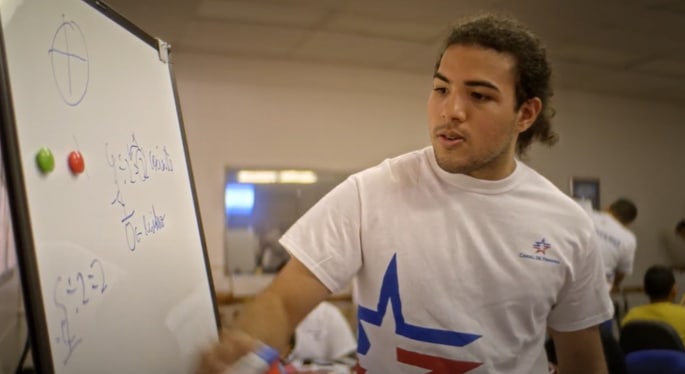
Ayudinga also teaches in front of students. Shown here a volunteer in a Panama classroom.
Batista believes that artificial intelligence and other technologies will play a growing role in education. Ayudinga and Huawei came together largely because they share the ideal of transforming education with digital technologies, he adds. “Our biggest challenge when creating free educational content is to connect with the student and make them connect with the information we seek to transmit, especially in such a changing world in which the hyper-information age is a reality.”
To see how Ayudinga is transforming education in Latin America, watch the video below.

